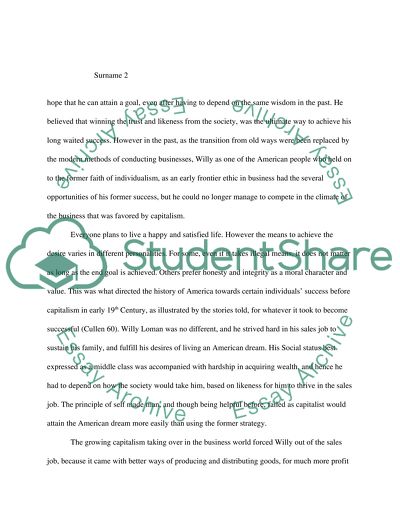Cite this document
(“Arthur Miller's use of capitalism in death of a salesman Research Paper”, n.d.)
Retrieved from https://studentshare.org/english/1462235-arthur-miller-s-use-of-capitalism-in-death-of-a
Retrieved from https://studentshare.org/english/1462235-arthur-miller-s-use-of-capitalism-in-death-of-a
(Arthur Miller'S Use of Capitalism in Death of a Salesman Research Paper)
https://studentshare.org/english/1462235-arthur-miller-s-use-of-capitalism-in-death-of-a.
https://studentshare.org/english/1462235-arthur-miller-s-use-of-capitalism-in-death-of-a.
“Arthur Miller'S Use of Capitalism in Death of a Salesman Research Paper”, n.d. https://studentshare.org/english/1462235-arthur-miller-s-use-of-capitalism-in-death-of-a.


